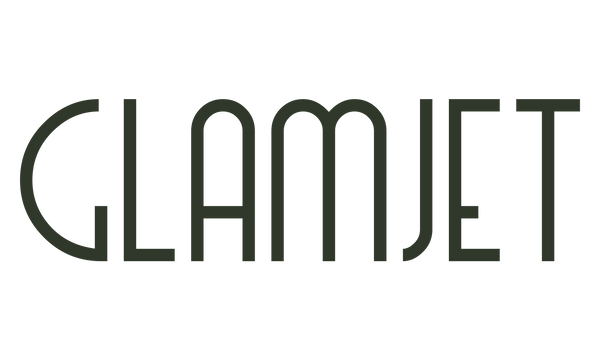Your Ultimate Guide To Prevent Acne And Plastic Surgery Scar Risks
When it comes to acne treatments, abrasive laser procedures, and plastic surgeries concerns about scarring are valid. These are common concerns for many Australian, New Zealand, and American clients who are thinking about having plastic surgeries overseas in South Korea or Thailand with Glamjet for procedures including: tummy tuck, breast lift, breast augmentation, rhinoplasty, deep plane SMAS facelift and neck lift, upper and lower blepharoplasty, forehead lift. These procedures can be transformative but also carry scarring risks if the skin isn’t properly cared for before and after the procedure. Here's how you can minimize scarring and ensure the best results through diet and skincare.
1. Foods to Avoid to Prevent Keloid Scars

When it comes to wound healing and scar prevention, everyone’s skin reacts differently. However, a well-balanced diet can significantly reduce the likelihood of developing keloids, dark scars, or sunken scars. For those prone to keloids, certain foods can overstimulate collagen production, increasing the risk of raised scars. Avoid these:
- Water spinach (rau muống): Stimulates connective tissue growth, leading to uneven and hypertrophic scars.
- Chicken: Can cause itching and delay wound healing.
- Beef: Disrupts new collagen fibers, potentially causing hyperpigmentation and raised scars.
- Sticky rice products: May lead to swelling and raised scar formation.
- High-fat foods (fast food): Slows healing and increases the risk of keloids.
- Acidic vegetables (sour-tasting): Impairs cell regeneration and prolongs healing time.
- Sugary snacks: Raises blood sugar levels, slowing wound recovery.
2. Foods to Avoid to Prevent Dark Scars

Dark scars, often caused by hyperpigmentation, can be minimized by avoiding:
- Iron and protein-rich foods (e.g., beef): Can darken scar tissue.
- Alcohol: Impairs circulation and slows recovery.
- Caffeine (coffee, tea): Reduces blood flow to healing areas.
- Dark green vegetables (e.g., spinach): Can cause uneven pigmentation on healing skin.
- Smoking: Restricts blood flow, increasing the risk of dark scars.
3. Foods to Avoid to Prevent Sunken Scars

Sunken scars result from insufficient collagen production. Avoid:
- Shellfish (e.g., crab, mussels): May interfere with tissue regeneration.
- Egg yolks: Can cause uneven skin pigmentation in healing wounds.
- Fish sauce: Triggers itching and delays collagen integration.
- Red meat and organ meats: Increase pigmentation, worsening sunken scars.
4. Foods That Promote Healing and Prevent Scars

A balanced diet rich in anti-inflammatory, protein-packed, and nutrient-dense foods helps accelerate recovery and minimize scarring.
Anti-inflammatory Foods:
Combat prolonged inflammation that can slow healing with these:
- Berries (strawberries, blueberries)
- Fatty fish (salmon, sardines)
- Broccoli
- Avocado
- Mushrooms
- Grapes
- Green tea
Protein-Rich Foods:
Proteins are vital for muscle repair and tissue regeneration. Include:
- Eggs
- Greek yogurt
- Lean meats (chicken breast, turkey)
- Tofu and legumes
- Fish (e.g., tuna)
Fiber:
Supports digestive health and enhances nutrient absorption for faster healing. Eat:
- Fresh fruits (berries, oranges)
- Vegetables (carrots, broccoli)
- Whole grains
Carbohydrates:
Provide energy for cellular repair. Opt for complex carbs like:
- Brown rice
- Quinoa
- Sweet potatoes
Healthy Fats:
Essential for reducing inflammation and promoting cell regeneration. Include:
- Olive oil
- Nuts and seeds
- Avocado
- Omega-3 sources (e.g., salmon, flaxseeds)
Vitamins and Minerals:
Boost recovery with these essentials:
- Vitamin A: Supports skin repair (carrots, sweet potatoes).
- Vitamin C: Aids collagen production (citrus fruits, berries).
- Vitamin E: Prevents oxidative stress (almonds, spinach).
- Vitamin D and Calcium: Strengthen bones and tissue (dairy, fortified foods).
5. Additional Tips for Wound Care
- Apply Sunscreen: Use a high-SPF, broad-spectrum sunscreen to prevent pigmentation around treated areas.
- Avoid Picking: Resist touching or picking at the healing skin to prevent additional scars.
- Stay Hydrated: Drink plenty of water and eat nutrient-rich foods to support skin repair.
- Use Gentle Products: Switch to hypoallergenic, fragrance-free skincare products to avoid irritation.
- Avoid heat applications: Heat can worsen inflammation. Opt for cold compresses during the first week of recovery.
- Limit alcohol consumption: Alcohol delays clotting and healing.
- Avoid vigorous exercise: Rest promotes optimal recovery.
- Skip massages near wounds: Newly formed tissues are delicate and prone to damage.
- Follow Instructions: Adhere to your provider's guidelines for cleansing and moisturizing.
With the right dietary and lifestyle choices, you can significantly improve wound healing and reduce scar formation. Share this guide with someone who could benefit!
Source:
Nha Thuoc An Khang (2024), Bi Seo Kieng An Gi, Viewed 2024: https://www.nhathuocankhang.com/ban-tin-suc-khoe/bi-seo-kieng-an-gi-1565121
Lartimer, H (2022), Nutrition For Injuries: What And What Not To Eat (2024), Viewed (2024): https://www.sydneyphysioclinic.com.au/injury-rehabilitation/nutrition-for-injuries-what-and-what-not-to-eat/
Louw, M (2017), 4 Things you should NOT do when injured (2024), Viewed (2024): https://www.sports-injury-physio.com/post/4-things-not-do-injured

